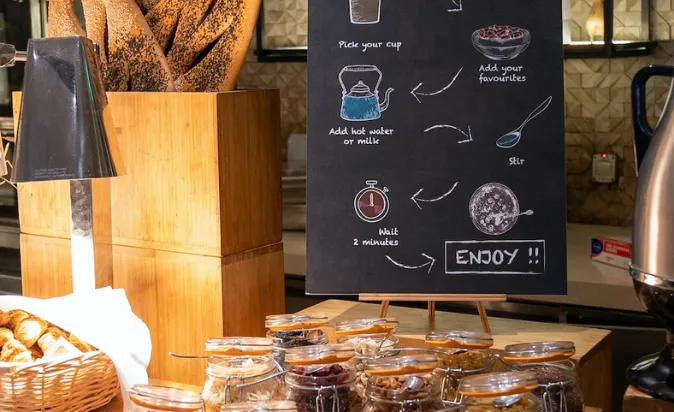Why Hotels Must Increase The Sustainability of Their Food and Beverage Operations
- July 31, 2023
- FMCG HORECA BUSINESS

The UAE's hotel and food and beverage industries are in the limelight as the nation gets ready to host COP28 in November 2023. Restaurant owners, hotel chains, and corporations are collaborating to provide more environmentally friendly alternatives in an effort to minimize waste and carbon impact.
We all have a crucial role to play in altering the sector to be more sustainable since we oversee a large portfolio of hotels and eating establishments. To do this, we must re-enforce crucial improvements across our operations.
Buy locally
The region's hotels have made considerable progress in implementing environmental initiatives into their operations and aligning themselves with the Net Zero concept. Hotels may further decrease their environmental impact by creating special gardens that grow food that can be picked and utilized right away in kitchens, in addition to making sure that hotel cooks use products from nearby farms.
It is crucial that hotels provide thoughtful cuisine and healthy nooks throughout their facilities as guests grow more conscious of their eating habits and choose better options. In collaboration with FreshonTable, Rotana's new breakfast menu features farm-fresh, vegan ingredients.
By including the Go Local section in our specialized restaurants, we want to promote the distinctive flavors of our locale, aid regional farmers, and lessen our environmental impact. This program not only supports our environmental objectives but also provides our customers with an exceptional eating experience.
Technology
Advanced tracking technologies promote the reduction of food waste by correctly measuring the carbon footprint and emissions of the whole food supply chain based on the 'food miles' saved throughout the process. By implementing sustainable technology and increasing operational effectiveness, hotels may actively contribute to lowering energy and water use.
Logistics
Large enterprises and hospitality organizations must also take into account how to integrate sustainable practices into their supply chain management and procurement procedures. Similar to Rotana, hotel chains may create a buying management program to direct each division in choosing items that are more environmentally friendly in their production, usage, and disposal. Continuous product/service evaluation is required, coupled with a search for sustainable alternatives.
It's crucial to shop around for the best prices when making purchases, but this shouldn't come at the cost of environmental or labor standards. Businesses must make sure they are collaborating with partners and suppliers that share their values of openness and honesty.
Training
The workforce must be taught the same sustainability ideals in order for everyone to adhere to the same standards. The onus is on hotel groups to spearhead initiatives that support key message to partners, employees, and stakeholders that share the same environmental goals. Rotana provides employee training and education on this subject, and we recently held a conference where we showcased systems and technology aimed at reducing waste and energy.
The expense of broad adoption is the biggest issue still facing the hotel industry. In the Middle East, sustainability is still developing even if it is not new in other areas. We will be able to lower expenses on a larger scale and, eventually, change the world with the help and encouragement of local governments. The largest contribution Rotana can do right now is to make sure that we have optimized our food production procedures so that waste is as little as possible given that we serve tens of thousands of meals every day. The safeguarding of the planet's natural resources and the lowering of pollution are both impacted by this.
It is encouraging and amazing that major food operators and hotels are showing the way for others in their dedication to such a crucial cause as we go ahead with developing the region's food operations business to minimize our carbon footprint.









